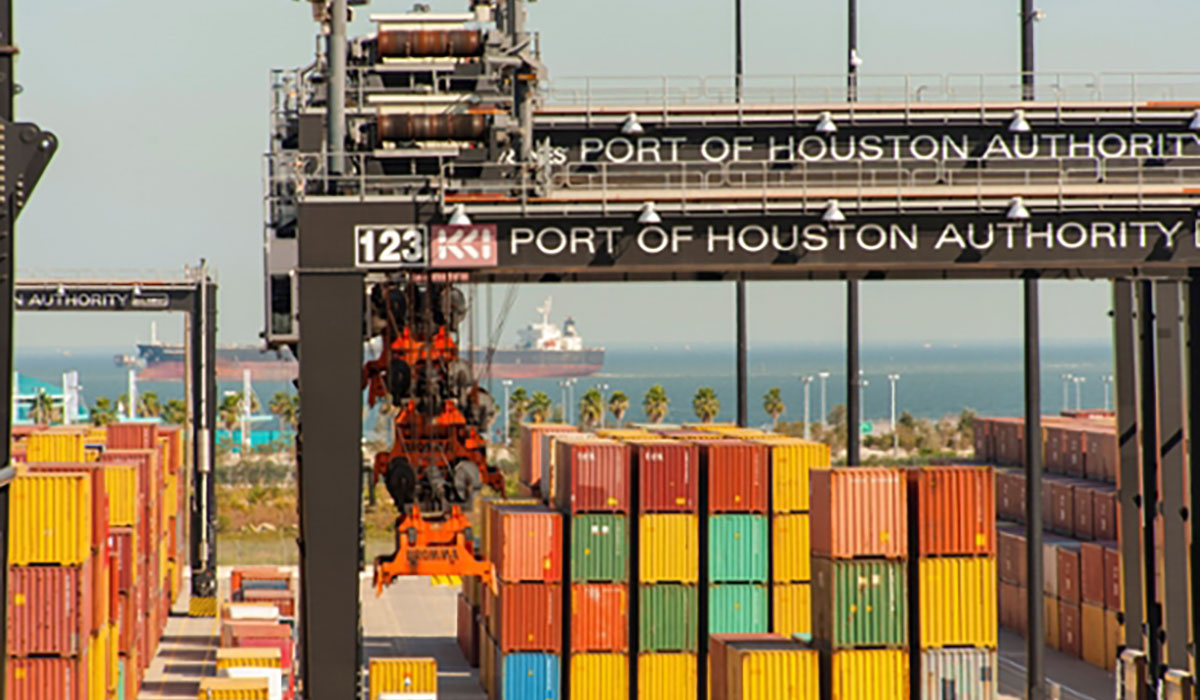
The Borders, Trade and Immigration Institute (BTI) has successfully concluded two years of the project titled “Participatory Operational Assessment (POA): Evaluating and predicting the operational effectiveness of Cargo Security Process at Ports of Entry (POEs)”.
Each year the U.S. imports and exports over two billion metric tons of cargo, including fifteen million TEU (Twenty Foot Equivalent Unit) Containers. This number grows annually due to population growth and new trade agreements. These cargoes are handled both by the DHS including Customs and Border Protection (CBP), Customs-Trade Partnership Against Terrorism (C-TPAT), and other agencies and industry stakeholders, including port authorities, vessel, rail and motor carrier operators, importers/exporters, freight forwarders, customs brokers, energy majors, manufacturers, etc. While these entities represent diverse institutional, geographical and industrial interests, their synergistic approach would be mutually beneficial in the development of a multi-leveled risk management protocol, for the identification, prevention, mitigation, and forecasting of security risks.
The research led by Prof. Maria Burns (UH) has developed a strategic process that helps minimize POE delays, identify risks beyond the borders, and propose improved efficiencies. The testbed for the first research year was the Port of Houston, TX and that for the second year in the southern U.S. borders included the land ports of Laredo, Eagle Pass, El Paso, Brownsville, and Hidalgo in Texas and Calexico in California. The deliverables provide ample findings that can be applied to other sea and land ports.
The Participatory Operational Assessment (POA) protocol represents a new component of the security risk management that not only strengthens Public/Private Partnerships beyond the US. Border, but also enhances the DHS mission and goals for optimizing the performance of our national 325 POEs.
Two approaches were used in this project:
- The empirical process testing approach, i.e. baseline measurements in specific testbeds;
- The STEM research approach, where statistical and econometric tools process the testbed findings.
An advisory board consisting of DHS Champions and industry stakeholders that evaluates the research findings driven through baseline measurements and statistical analysis while recommending best practices would be developed.
Novelties, Benefits & Capabilities
There are many benefits and capabilities involved with the Participatory Operational & Security Assessment Methodology, including but not limited to:
- Bridging homeland security / border crossing agencies and industry stakeholders to identify risk areas and develop mutual strategies for alleviating the border threats;
- Expanding beyond the physical borders and promoting a unified, collaborative environment that extends its risk assessment protocols way beyond the border and the national territorial risks;
- Knowledge sharing that encompasses Risk Management applications through its main stages of (i) Risk Identification; (ii) Contingency Planning; and (iii) Emergency Response & Recovery;
- Testing team efficiency, participation, and confidentiality prior to committing to Public/Private partnerships.
The POA protocol is easy and fast to adopt, and its effectiveness can be tested promptly. Once the effectiveness of this synergistic strategy is tested, Public/Private partnerships are formed and strategic action can lead to the facilitation of border processing times. Recommendations and best practices are herewith offered to help improve turnaround times and increase efficiency of cargo operations. Hence, the findings will facilitate the DHS/CBP need to diligently process inbound containers and enhance security.
 Maria G. Burns has been a valued Performer with the BTI Institute since 2015. She has numerous publications and authored books on logistics, transportation and port management and operations. Burns is a Ph.D. candidate in Environmental Studies at Vrije Universiteit Brussels, Belgium and earned a Masters in Science in International Trade & Transportation from London Metropolitan University, England. She currently serves as the director of the Center for Logistics & Transportation Policy in the College of Technology at the University of Houston. Maria G. Burns has been a valued Performer with the BTI Institute since 2015. She has numerous publications and authored books on logistics, transportation and port management and operations. Burns is a Ph.D. candidate in Environmental Studies at Vrije Universiteit Brussels, Belgium and earned a Masters in Science in International Trade & Transportation from London Metropolitan University, England. She currently serves as the director of the Center for Logistics & Transportation Policy in the College of Technology at the University of Houston. |